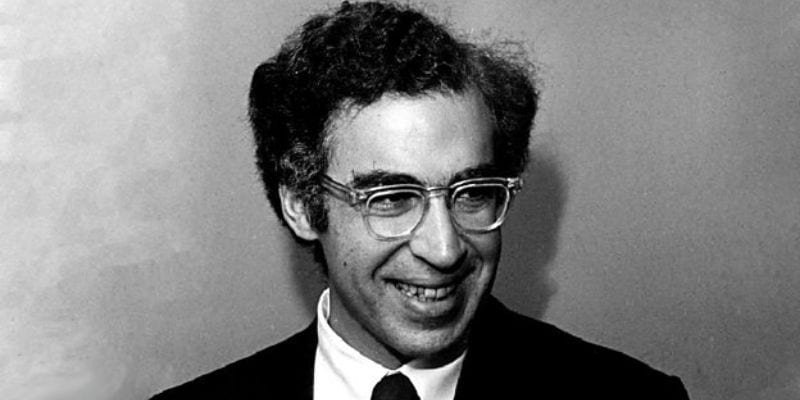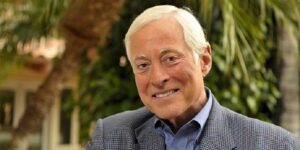Donald Schön

Donald Schön (1930-1997) was één van de meest invloedrijke bedenkers achter de ontwikkeling van theorieën en casestudies over ‘reflective learning’ binnen de zakelijke dienstverlening. Tevens is Donald Schön mede grondlegger van de theorie achter single loop learning en double loop learning.
Biografie
Donald Schön behaalde in zijn jongere jaren een BSc. graad aan de universiteit van Yale en een MSc. graad aan Harvard University.
Schön was als filosoof altijd geboeid door onderzoek waardoor een carrière in de wetenschap niet uitbleef. Gedurende de jaren van studie en onderzoek met Raymond Hainer, Thomas Kuhn en Chris Argyris, bracht Donald Schön meerdere inzichten op het gebied van gedrag en organisatiekunde.
Schön heeft binnen de wetenschap en praktijk belangrijke concepten geïntroduceerd zoals ‘learning systems’, frame reflectie, reflectief praktijk onderzoek en generatieve metaforen (figuratieve beschrijvingen van sociale situaties).
Vooral het concept van ‘learnings systems’ heeft Donald Schön samen met Chris Argyris qua onderzoek en ontwikkeling uitgediept. Beide heren hadden een bepaalde visie over de flexibiliteit van mensen en organisaties. Levenslessen en –ervaringen zouden moeten bijdragen aan ontwikkeling van mensen en organisaties ten tijde van veranderingen. Dit gedachtegoed is verder uitgewerkt in de theorie achter ‘organizational learning’.
Schön en Argyris hebben hun bijdragen daarin geleverd door de theorie van single- en double loop learning te ontwikkelen.
Quotes van Donald Schön
- “A practitioner’s reflection can serve as a corrective to over-learning. Through reflection, he can surface and criticize the tacit understandings that have grown up around the repetitive experiences of a specialized practice, and can make new sense of the situations of uncertainty or uniqueness which he may allow himself to experience.”
- “Reflective practice is a dialogue of thinking and doing through which I become more skilful.”
- “Our bias toward thinking blinds us to the non-logical processes which are omnipresent in effective practice.”
- “The reflective practitioner allows himself to experience surprise, puzzlement, or confusion in a situation which he finds uncertain or unique. He reflects on the phenomenon before him, and on the prior understandings which have been implicit in his behaviour. He carries out an experiment which serves to generate both a new understanding of the phenomenon and a change in the situation.”
- “Old questions are not answered—they only go out of fashion.”
- “There is a high, hard ground where practitioners can make effective use of research-based theory and technique, and there is a swampy lowland where situations are confusing “messes” incapable of technical solution… In the swamp are the problems of greatest human concern.”
- “Belief in the stable state serves primarily to protect us from apprehension of the threats inherent in change. Belief in stability is a means of maintaining stability, or at any rate the illusion of stability.”
Bekende publicaties en boeken van Donald Schön et al.
- 1999. High technology and low-income communities: Prospects for the positive use of advanced information technology. MIT press.
- 1996. Organizational learning II: Theory, method and practice. Addison Wesley.
- 1995. Knowing-in-action: The new scholarship requires a new epistemology. Change: The Magazine of Higher Learning, 27(6), 27-34.
- 1994. Frame Reflection: Toward the Resolution of Intractable Policy Controversies. Basic Books.
- 1993. Generative metaphor: A perspective on problem-setting in social policy.
- 1992. The theory of inquiry: Dewey’s legacy to education. Curriculum inquiry, 22(2), 119-139.
- 1991. The Reflective Turn: Case studies in and on educational practice. New York: Teachers College (Columbia).
- 1989. Participatory action research and action science compared: A commentary. American behavioral scientist, 32(5), 612-623.
- 1988. Designing: Rules, types and words. Design studies, 9(3), 181-190.
- 1988. Coaching reflective teaching. Reflection in teacher education, 19-29.
- 1987. Educating the Reflective Practitioner. Jossey-Bass.
- 1985. The design studio: an exploration of its traditions and potentials. London : RIBA Publications for RIBA Building Industry Trust.
- 1983, 1987, 1991. The Reflective Practitioner: How professionals think in action. Temple Smith.
- 1978. Organizational learning: A theory of action perspective. Addison-Wesley.
- 1974. Theory in practice: Increasing professional effectiveness. Jossey-Bass.
- 1971. Beyond the stable state: Public and private learning in a changing society. Maurice Temple Smith Limited.
- 1967. Technology and change: The new Heraclitus. Oxford: Pergamon.
- 1963. The Displacement of Concepts. London: Tavistock.
Citatie voor dit artikel:
Van Vliet, V. (2012). Donald Schön. Retrieved [insert date] from Toolshero: https://www.toolshero.nl/bekende-auteurs/donald-schon/
Wilt u linken naar dit artikel, dat kan!
<a href=”https://www.toolshero.nl/bekende-auteurs/donald-schon/”>Toolshero: Donald Schön</a>
Gepubliceerd op: 06/04/2012 | Laatste update: 23/09/2022











